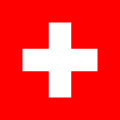History and political issues
Officially, the defending champion Czechoslovaks did not arrive in London because two of their journalists did not receive their visas. [1] In reality, communist authorities had become uneasy after the LTC Praha (LTC Prague) club team had suffered defections at the 1948 Spengler Cup in Davos, the death of six national team players in a plane crash a few months before the 1949 World Ice Hockey Championships, and the defection of former national hockey team player (and future Wimbledon tennis champion) Jaroslav Drobný in June 1949. The authorities arrested several members of the 1950 national team while they were awaiting their delayed flight at the Prague Airport. [2] On 7 October 1950, the players appeared in court charged with espionage and were named "state traitors." At issue was the claim that several players on the 1950 national team, who played their club hockey with LTC Praha, had discussed defecting in Davos in 1948—though only Miroslav Sláma, two other players and one of the heads of the delegation had actually defected at that Spengler Cup tournament. [2] All twelve men were convicted, with sentences ranging from eight months to 15 years. Then current LTC Praha and former national team goaltender Bohumil Modrý, a delegate with the 1950 national team, was the one to receive the 15 year sentence, as he was mysteriously cast as the "main figure" in the potential defection plan. [2]
Despite the politics, International Ice Hockey Federation president W. G. Hardy stressed that the event was "to promote international amity". [3] Hardy credited the Sweden men's national ice hockey team for great improvements reflecting the growth of the game in Sweden. [4]
This page is based on this
Wikipedia article Text is available under the
CC BY-SA 4.0 license; additional terms may apply.
Images, videos and audio are available under their respective licenses.
